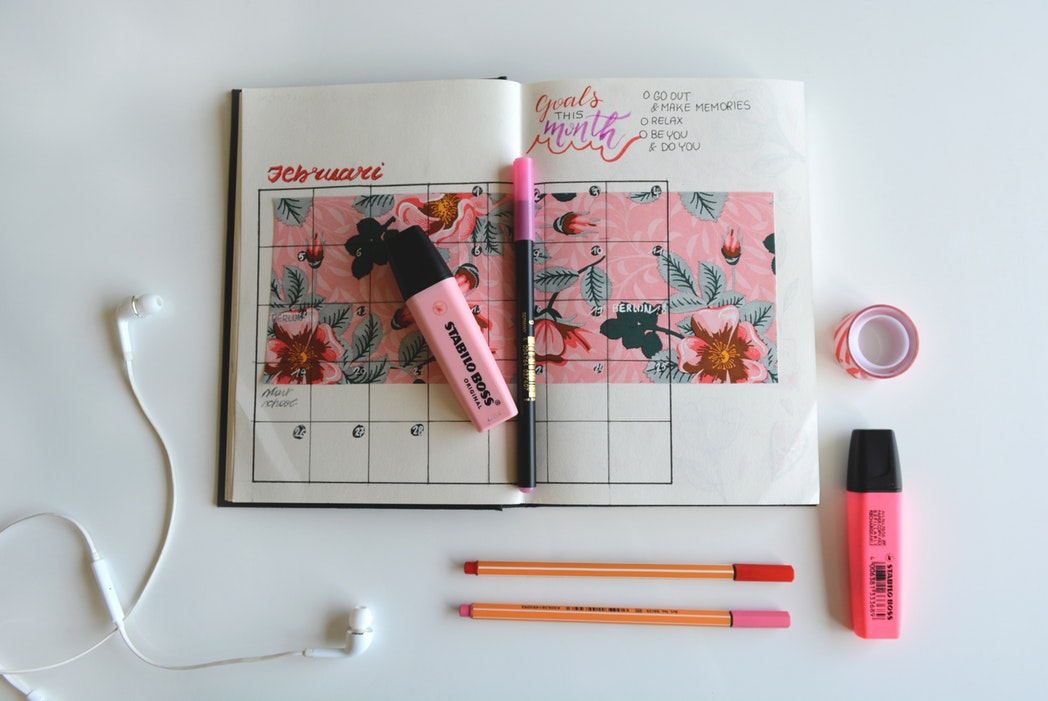7 Ways to Stop Procrastinating

Still haven’t done the laundry or the dishes? What about applying for your dream job or wanting to write that book you always had ideas for? Procrastination doesn’t just hold us back from getting tasks done—it also holds us back from reaching our highest potential. If you find yourself falling apart, know that once you’ve reached the bottom, there’s always a chance to start over. The end hasn’t come yet and we want to help you acknowledge that. Psych2Go shares with you 7 ways to stop procrastinating:

1. List all the things you haven’t completed yet that need to be done.
You can do this by simply taking out a blank sheet of paper and jotting all your tasks down. This essentially acts as your to-do list. Once you’ve written down the activities that need to be done, the next step is to choose one of them and do it. As you continue to get things done, one by one, you can go back to the list and cross them off. It’s highly recommended that you invest in a planner, bullet journal, notepad, or use the notes and calendar app on your phone if you are more technologically inclined. This is a great way for you to stay on track, organized, and motivated. As an added bonus, there’s always something satisfying about deleting or crossing things off and knowing that you finished what needed to be done.
I enjoy using a bullet journal and colorful pens to write my to-do lists because it allows me to personalize and create my own agenda. In a way, it acts as a diary because I can always go back and look at everything I’ve done. Not only that, but I can also remember how much I can typically complete in one day. This helps me plan more efficiently the next time when I understand the pace I work at and know what tasks I have left to complete. Overall, I learned that it’s good to write your goals down so that you don’t have to bottle them up or worry about forgetting what needs to be done, because you have a physical copy that you can always turn to if you ever need to reschedule or re-prioritize your tasks.

2. Break your work down into smaller tasks and set realistic deadlines.
When you have a big project to complete, it can seem daunting to ask yourself where to start. Make it more approachable by breaking the project down into smaller steps. Once you’ve done this, you can then create the chronological order of when each task needs to be done. This will help you map out a timeline and set realistic deadlines to complete them.
If you’re an optimistic person like me, I have a bad habit of overestimating the amount of time I have to complete projects. As a result, in the past, I have tried to cram everything all at once in one day, and because I was worried about getting things done by the deadlines I set, the quality of my work reduced. To ensure that the work you do is your best, take your time with your tasks and don’t feel as though you have to rush. Being productive isn’t the same as competing in a race.

3. Don’t worry about being perfect.
When you strive for perfection, you can become overly wound up in the way you perform or execute your tasks. As a result, you may hesitate to take the next step and this will prevent you from making progress. In other words, focusing on the results too much can delay the actions you can take to improve your skills.
I have perfectionistic tendencies and often worry about doing “the right thing.” Although I never fully stop in my tracks, I’ve discovered that I’ve spent a great amount of time playing what-if scenarios in my head, rather than actively learning how to get better from real-life experiences. Truthfully, no matter how prepared or organized you think you are, life happens and setbacks, failures, and obstacles occur. Over the years, I’ve learned that you don’t need to have everything figured out right from the very beginning. In fact, that defeats the purpose of the journey. What’s important is being able to recognize where your weaknesses lie, owning up to your actions and mistakes, staying humble, and having the courage to still look ahead and move forward.
Self-doubt is my biggest enemy still to this very day, but I learn to combat it with my will and drive to find meaning in what I do. It’s healthy to have a purpose and run with it. It doesn’t make you naive. But waiting to perfect things will work against you. You miss out on growing. Nothing is clean or clear-cut. There are days where you will feel uncertain and nights where you are so close to giving up, but you don’t have to listen to those voices. You’ve got this.

4. Make sure your environment encourages you to be productive.
Do you work in a room with the TV on? Do you get interrupted often by phone calls or text messages? Unless someone calls you about something related to a project you are working on or if it’s an emergency, it’s important to minimize disturbances. If people often come to you for help, it’s okay to say no every once in a while to prioritize your own tasks and responsibilities. Otherwise, you continue to procrastinate by fulfilling other people’s needs. If you still wish to lend a helping hand, you can tell them you are happy to assist them once you get your work done. Being able to work in an environment that allows you space to think clearly is what will encourage you to be more productive and enhance the quality of work you do.
Everyone has their own ideal workspace. Mine entails a room that is neither too hot nor cold, a clean desk with all the required tools, space for my hands to work freely, and a window to look out at that reminds me there’s more to life than just work when I start to feel burnt out. I’m still in the process of building my desired workspace, but I work with what I can and still make sure I’m in a room with little to no interruptions. The space you work in is just as important as the work that you do. Everyday, it becomes a part of you.

5. Tell your friends, family, and/or coworkers what you are working on.
That way, every time you guys hang out, they will ask you how things have been coming along. It’ll give you a chance to update them about the progress you’ve been making. This will hold you accountable for what you need to accomplish. If your friends find that you haven’t been as productive or you’ve been putting something off, they will most likely ask you why it hasn’t been done yet. When you hear yourself making excuses, you will recognize that you need to be more proactive.

6. Talk about the problems you face and work out a solution with others.
If there are problems that are distracting you from getting your work done, such as a family dispute or relationship challenges, communicate them and work out a solution first. When you can’t concentrate on your work because something is bothering you, your emotions can cloud the judgments you make. As a result, your work quality may suffer and it may take you longer to complete a task.
Although there have been incidences in my life where the sadness or disappointment I’ve felt have motivated me to bury myself in work, especially in my writing, it has produced workaholic tendencies within me that I am trying to establish a balance towards. I’ve learned over the years that when I bottle up my emotions or suffer in silence, it impacts my mental health and my ability to think clearly. To this day, I am still learning how to problem-solve more effectively.

7. Focus on today, not tomorrow.
It’s easy to get caught up on the future, but don’t fall into the trap of putting things off until tomorrow. Instead, stay in the present. Procrastination is a messy cycle where we sound like broken records about getting something done. You don’t need to get everything done in one day, but learn to focus on one task at a time. The big picture may get bigger and scarier the more you look at it, but make sure you don’t lose sight on what is in front of you. Don’t worry about the problems that haven’t happened yet. Work out strategies and the actions you can take now. This will minimize the fears and doubts that come up when you exaggerate ideas that haven’t bloomed into reality yet. So grab your favorite mug, stay hydrated, and let’s get the show on the road. You can do it!
Do you procrastinate often? How do you plan to stop the cycle? Psych2Go would love to hear your thoughts! Please be sure to leave a comment down below!
Want to say hello or send a personal message? You can reach the author at catherine@psych2go.net. ♥
If you enjoyed this article, then you may also like 5 Ways to Form Productive Habits That Will Help You Get Ahead in Life or 5 Habits of Highly Successful People from Psych2Go.
References:
Chua, C. (2018). 11 Practical Ways to Stop Procrastination. Lifehack. Retrieved February 21, 2018.
Waitley, D. (2015, October 6). 7 Simple Ways to Stop Procrastinating. Success. Retrieved February 21, 2018.
Please be sure to also check out our new e-book: An Introvert’s Survival Guide! Get your copy today!




Keep up the great content Catherine! I read through everything you suggested, it helped me a lot and I’ll keep taking a look at the website! ♥
Aww, thanks Adrian! I’m so glad you’re here at Psych2Go! I hope you can continue coming here when you feel troubled or confused. =] We aim to be a safe place for everyone in need of help. Please don’t hesitate to reach out again if you want to see more of certain content! I’m always happy to help people like you in our community! Have a great and I truly hope things get better! ♥
[…] If you enjoyed this article, then you may also like 7 Reasons LQ is Essential to Your Career Success or 7 Ways to Stop Procrastinating. […]